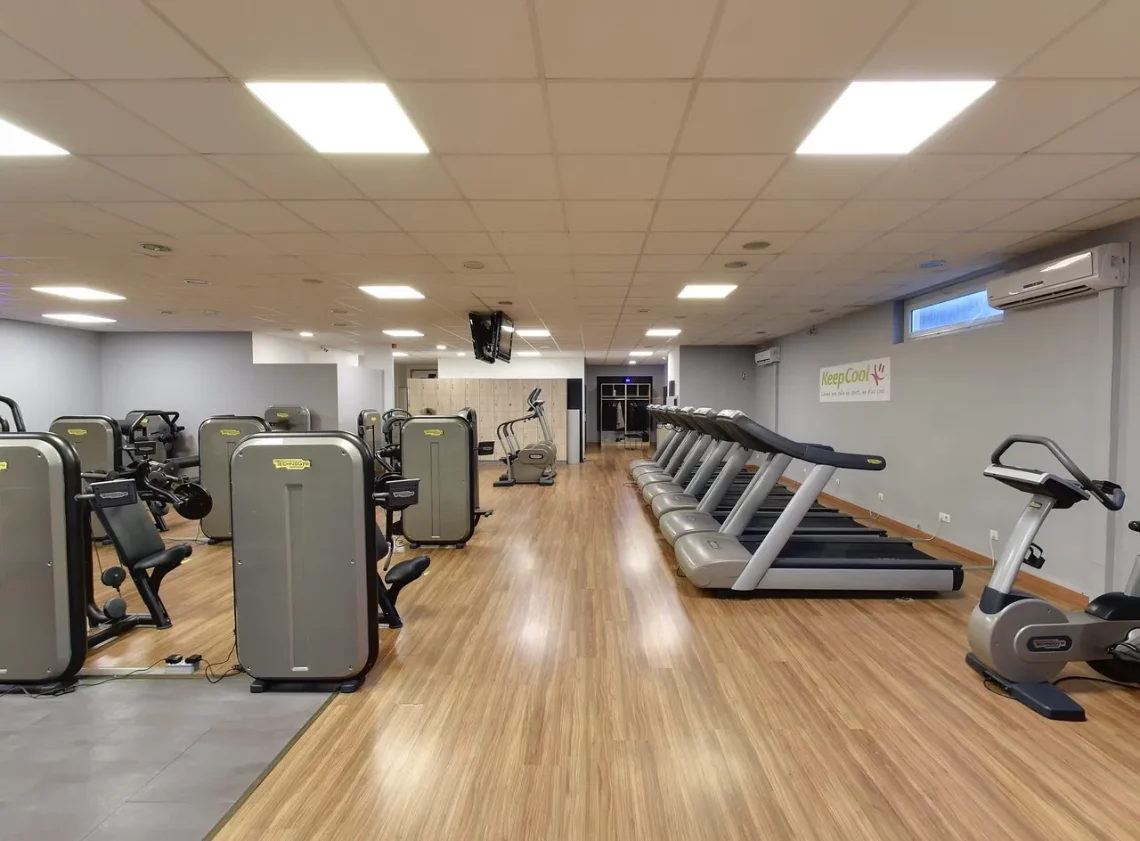
The Importance of Cardio in Your Fitness Routine
In today’s fast-paced world, maintaining a healthy lifestyle has become more important than ever. As individuals grapple with busy schedules and the pressures of daily life, finding the right balance between work, family, and personal wellness can be challenging. Among the various components of a fitness routine, cardiovascular exercise stands out as a crucial element that contributes significantly to overall health and wellbeing.
Cardio workouts, which can range from running and cycling to dancing and swimming, are not only effective for burning calories but also play a vital role in enhancing heart health and improving endurance. Engaging in regular cardiovascular activities can lead to numerous benefits, including increased energy levels, improved mood, and better sleep quality. Moreover, these exercises can serve as a powerful tool for weight management and stress relief.
As we delve deeper into the topic, it becomes clear that understanding the significance of cardio in our fitness routines is essential for anyone looking to improve their health. Whether you are a seasoned athlete or a beginner just starting on your fitness journey, incorporating cardiovascular training into your regimen can yield transformative results.
Benefits of Cardiovascular Exercise
Cardiovascular exercise, commonly known as cardio, offers a wide array of benefits that go beyond mere weight loss. One of the primary advantages of engaging in regular cardio workouts is the improvement in heart health. As the heart is a muscle, it requires consistent exercise to strengthen and function optimally. Cardio helps to enhance the efficiency of the heart by increasing its ability to pump blood throughout the body, which in turn reduces the risk of heart disease.
In addition to its cardiovascular benefits, regular cardio exercise can significantly contribute to weight management. Engaging in activities that elevate the heart rate helps to burn calories more effectively than many other forms of exercise. This calorie expenditure is crucial for those looking to shed extra pounds or maintain a healthy weight. Furthermore, cardio can boost metabolism, allowing the body to burn calories even at rest.
Mood enhancement is another significant benefit associated with cardiovascular activities. When you engage in cardio, your body releases endorphins, often referred to as “feel-good” hormones. These chemicals can help combat feelings of stress, anxiety, and depression, promoting a more positive mindset. Many people report feeling an immediate boost in their mood after a good cardio session, making it a natural and effective way to manage everyday stressors.
Moreover, cardiovascular exercise can improve sleep quality. Individuals who incorporate regular cardio into their routines often find it easier to fall asleep and experience deeper, more restorative sleep cycles. This is particularly important in today’s world where sleep disorders are increasingly prevalent.
Finally, cardiovascular exercise can enhance overall stamina and endurance, making daily activities feel less taxing. Whether it’s climbing stairs, playing with children, or simply getting through a busy workday, improved endurance can lead to a higher quality of life.
Types of Cardiovascular Activities
When it comes to incorporating cardio into your fitness routine, the options are virtually limitless. Different types of cardiovascular activities can cater to various preferences, fitness levels, and goals. Understanding the various forms of cardio can help you find the right fit for your lifestyle.
One of the most popular forms of cardiovascular exercise is running. Whether on a treadmill or outdoors, running provides an excellent workout that can be easily tailored to individual fitness levels. It’s a weight-bearing exercise that promotes bone health while also offering a high calorie burn. For those who prefer a lower-impact option, walking or jogging can be equally effective, providing cardiovascular benefits without placing excessive strain on the joints.
Cycling is another fantastic form of cardio that can be enjoyed indoors or outdoors. Stationary bikes have gained popularity in recent years, offering a convenient way to engage in cardiovascular exercise while watching TV or listening to music. Outdoor cycling allows for exploration and adventure, making it a great way to enjoy nature while getting fit.
Swimming is an ideal choice for those seeking a full-body workout with minimal impact on the joints. It engages multiple muscle groups and improves cardiovascular fitness while being gentle on the body, making it suitable for individuals of all ages.
Group fitness classes, such as Zumba, kickboxing, or aerobics, provide a social aspect to cardio workouts. These classes are often led by experienced instructors who can motivate participants and create an enjoyable atmosphere. The communal environment can enhance motivation and accountability, making it easier to stick to a regular exercise schedule.
Lastly, interval training has gained popularity for its efficiency and effectiveness. This involves alternating between high-intensity bursts and periods of lower intensity or rest. Interval training can be adapted to various activities, including running, cycling, or even bodyweight exercises, making it a versatile option for those looking to maximize their cardio workouts in a shorter amount of time.
Incorporating Cardio into Your Routine
Integrating cardiovascular exercise into your fitness routine doesn’t have to be overwhelming. The key is to find activities that you enjoy and can sustain over the long term. Here are some practical tips for incorporating cardio into your daily life.
First, assess your current fitness level and preferences. If you’re new to exercise, start with shorter sessions, such as 10 to 15 minutes, and gradually increase the duration as your fitness improves. This can help prevent burnout or injury and make the transition to a more active lifestyle more manageable.
Next, set realistic goals. Whether it’s aiming for a certain number of steps per day, committing to a specific number of workouts per week, or training for an event like a 5K, having clear objectives can provide motivation and direction. Tracking your progress can also be beneficial, as it allows you to celebrate achievements and stay accountable.
Consider mixing different types of cardio workouts throughout the week. This not only keeps your routine fresh and exciting but also engages different muscle groups and prevents overuse injuries. For example, you might run on Mondays, cycle on Wednesdays, and swim on Fridays, allowing for both variety and balance.
Incorporating cardio into your daily life can also be as simple as making small changes to your routine. Opt for stairs instead of elevators, take brisk walks during breaks, or engage in active family outings. Every bit of movement counts, and finding ways to be active throughout the day can significantly contribute to your overall cardiovascular health.
Finally, listen to your body and allow for rest and recovery. Overtraining can lead to fatigue and injuries, so it’s essential to give your body the time it needs to recuperate. Incorporating rest days or active recovery days can enhance your overall performance and enjoyment of cardiovascular exercise.
In conclusion, cardiovascular exercise is a vital component of any fitness routine, offering numerous physical and mental benefits. By understanding its importance and exploring the various types and methods of incorporating cardio into your life, you can enhance your overall wellbeing and foster a sustainable, healthy lifestyle.
*Disclaimer: This article is for informational purposes only and does not constitute medical advice. Always consult a healthcare professional for any health concerns or medical conditions.*




